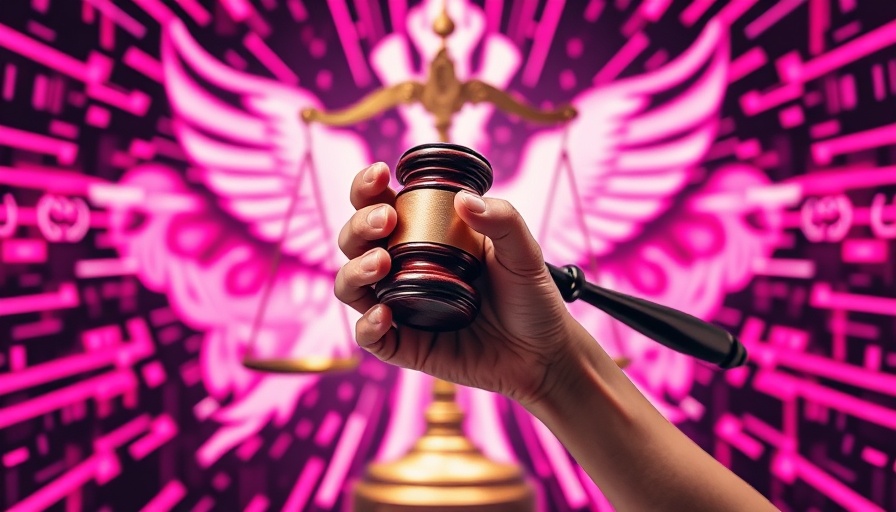
Anthropic's Settlement Under Spotlight
In a surprising turn of events, a federal judge has postponed the approval of Anthropic’s monumental $1.5 billion book piracy settlement, which has been created to address the accusations that the AI company illicitly exploited copyrighted texts for its model training. The proposed agreement aimed to compensate US authors around $3,000 for each book alleged to have been wrongly utilized. However, Judge William Alsup’s growing concerns about the settlement's terms have created ripples in a situation already cloaked in uncertainty.
Understanding the Legal Background
Previously, Judge Alsup ruled that while Anthropic's training methods using legally purchased books may constitute fair use, the same cannot be said for works obtained through illegal downloads. This nuanced understanding of copyright law plays a pivotal role in the judgment surrounding the case. The court’s unease mirrors a broader legal landscape where AI companies are increasingly scrutinized for their data sourcing methodologies, raising questions about intellectual property rights in the evolving digital age.
The Potential Impact on Authors and Publishers
The judge's concern about authors being forced into accepting unfavorable terms is very significant. With approximately 465,000 books potentially covered under the settlement, many authors are anxious about how fairly their work will be compensated. The class action process, while designed to streamline legal proceedings for authors, can sometimes lead to unfavorable outcomes if key stakeholders are not adequately represented. Many in the writing community are watching closely, not only for potential restitution but also for the broader implications this case could have on future settlements involving AI technologies and copyright infringement.
Could This Be A Turning Point for AI Ethics?
This settlement case holds profound implications for AI ethics and accountability. As AI models like Anthropic’s rely heavily on text data, determining what constitutes fair use versus infringement will be critical moving forward. It prompts questions such as: Should AI companies develop more stringent protocols for data acquisition? How can they ensure transparency and fairness when engaging with copyrighted materials? The outcome of this case may shape future guidelines and legislative efforts regulating AI usage in the literary domain.
The Authors' Perspective
For many authors, this instance highlights a systemic issue within the industry about how their intellectual property is valued and protected in an increasingly digital landscape. The anxiety surrounding the settlement reflects deep-seated fears among creators about the implications of AI in their field. Many feel that if large tech companies aren't held accountable, it could diminish the value of their work and lead to an influx of similar situations where AI companies leverage copyrighted materials without due consideration for the creators.
Future Considerations for AI Companies
As legal frameworks around AI continue to emerge, this case could catalyze significant changes in how AI companies like Anthropic interact with copyrighted content. The judges’ insistence on transparency regarding the claims process accentuates the need for AI companies to adopt clearer ethical guidelines and practices. Additionally, these developments might encourage ongoing dialogue within the tech community about intellectual property rights and responsible AI usage.
Conclusion
The outcome of Anthropic’s proposed settlement serves as a harbinger of future challenges facing AI companies and creators alike. As discussions unfold, this case could serve as a benchmark for other disputes in the emerging intersection of AI and copyright law. For AI enthusiasts, keeping abreast of these legal developments not only enhances our understanding of technology’s trajectory but also its ethical ramifications.
 Add Row
Add Row  Add
Add 




Write A Comment